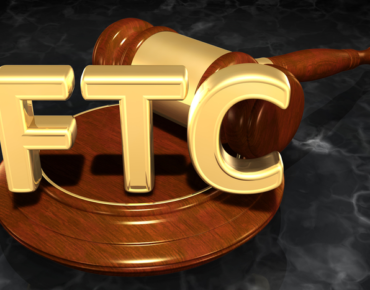Nvidia: U.S. Federal Trade Commission Is Reviewing the Proposed $40B Arm Acquisition

The U.S. Federal Trade Commission has been added to the growing list of government agencies around the world that are reviewing the proposed $40 billion acquisition of U.K.-based Arm Ltd. by Nvidia.
The FTC perusal was noted briefly by Nvidia chief financial officer Colette Kress on Nov. 17 as she presented the company’s recent Q3 fiscal 2022 financial results on an investor call as she described the results.
“Regulators at the U.S. FTC have expressed concerns regarding the transaction, and we are engaged in discussions with them regarding remedies to address those concerns,” said Kress, who had no further comment on the FTC or the focus of its “concerns.” Her comments were recorded and posted online in a transcript by The Motley Fool.
Recently, both the U.K. government and the European Commission (EC) announced that they are independently conducting their own Phase Two rounds of investigations into the proposed acquisition. The U.K. has voiced concerns about competition and national security, while the EC is looking at competitive issues surrounding the merger. The case is also under a regulatory microscope in China.
Kress acknowledged those investigations in her presentation.
“The transaction has been under review by China Antitrust Authority, pending the formal case initiation,” she said. “Regulators in the U.K. and the [EC] have declined to approve the transaction in Phase One of their reviews on competition concerns. In the U.K., they have also voiced national security concerns. We have begun the Phase Two process in the [EC] and U.K. jurisdictions. Despite these concerns and those raised by some Arm licensees, we continue to believe in the merits and the benefits of the acquisition to Arm, to its licensees and to the industry.”
Concerns about the potential merger have also been voiced by some Arm licensees and competitors, who say that the merger would stifle competition and could harm licensees if Nvidia recognizes them with less urgency after the transaction would take place. Kress said the company hears those concerns but does not feel they are warranted.
Kress’ remarks are apparently the first public mention of any FTC investigation or actions in connection with the proposed acquisition.
A spokesperson for the FTC declined to comment about the matter and told EnterpriseAI that it does not confirm any investigations it may be taking in the case.
An Nvidia spokesperson also declined to comment about the FTC investigation, saying the company would not discuss the matter beyond Kress’ remarks during the earnings call. The company would not characterize its conversations with the FTC.
Jack E. Gold, president and principal analyst of J.Gold Associates, LLC, has been following the Nvidia merger proposal for Arm since it was announced in September 2020 and has continued to tell EnterpriseAI that the case for the merger is not looking good.
“It is not really much of a surprise [that the FTC is reviewing the matter] given the strong opposition from key U.S. semiconductor companies like Qualcomm, Intel and AMD,” said Gold. “I am sure the FTC has heard from those companies, and likely from lobbying groups and even some politicians about this. I am not sure the FTC will weigh in until the Europeans do, but it is to be expected that the FTC would investigate an acquisition of this size and scope.”
Just last week, on Nov. 16, the U.K. government ordered an in-depth, 24-week “Phase Two” investigation into the proposed deal. That investigation follows an earlier Phase One investigation the government conducted over the summer. The U.K.’s deepened investigation, which will be conducted by the government’s Competition and Markets Authority (CMA), follows a similar follow-up investigation into the proposed acquisition that was undertaken three weeks earlier by the EC.
The U.K.’s Phase Two investigation was ordered by Nadine Dorries, the nation’s Secretary of State for Digital, Culture, Media and Sport, following her review of the earlier Phase One report into the proposed acquisition that was completed in August. The Phase One report from the CMA criticized the proposed acquisition, saying it could “lead to a realistic prospect of a substantial lessening of competition” in the globally-important chip industry. The CMA was tasked with evaluating the deal on competitive and national security grounds and reporting back to the government.
“I have carefully considered the Competition and Market Authority’s Phase One report into Nvidia’s proposed takeover of Arm and have decided to ask them to undertake a further in-depth Phase Two investigation,” Dorries said in her order for a deeper investigation. “Arm has a unique place in the global technology supply chain, and we must make sure the implications of this transaction are fully considered. The CMA will now report to me on competition and national security grounds and provide advice on the next steps. The government’s commitment to our thriving tech sector is unwavering and we welcome foreign investment, but it is right that we fully consider the implications of this transaction.”
Dorries said the Phase Two report is expected back to her from the CMA within 24 weeks but could also extended by up to eight weeks.
The CMA’s original Phase One report listed concerns about the potential merger, including the possibility of a “substantial lessening of competition across four key markets” – data centers, internet of things, the automotive sector and gaming applications. Also noted in the report were concerns about national security interests.
Dorries, who is also a member of the British Parliament, has the authority to review the matter under the U.K. Digital Secretary’s statutory powers through the nation's Enterprise Act 2002, according to her office. The Enterprise Act 2002 enables the CMA to scrutinize and intervene in potentially anti-competitive mergers and acquisition activity. The Enterprise Act 2002 also allows the U.K. Secretary of State to make quasi-judicial decisions to intervene in mergers on behalf of public interest when it comes to national security, media plurality, the stability of the U.K. financial system or to combat public health emergencies.
The EC had unveiled its own “in-depth investigation” of the proposed merger several weeks earlier on Oct. 27. The EC investigation aims to probe whether the merger could stifle fair competition in the marketplace. The EC’s first investigation phase determined that it needed more time to evaluate the proposed merger and its effects before it issues a final decision in the case.
The EC’s initial concerns about the proposed deal are that “the merged entity would have the ability and incentive to restrict access by Nvidia’s rivals to Arm's technology and that the proposed transaction could lead to higher prices, less choice and reduced innovation in the semiconductor industry,” the EC said in a statement. The EC’s in-depth investigation will be conducted under the European Union’s Merger Regulation and the EC said it expects to issue a decision by March 15, 2022, which is 90 working days from its latest ruling.
Since the proposed merger of Nvidia and Arm was announced, it has been the subject of controversy as well as praise. Other major tech companies, including Google and Microsoft, have also vocally opposed the deal, issuing repeated concerns about its negative effects on competition and pricing.
But in June of 2021, three other chip companies – Broadcom, Marvell and MediaTek – backed the acquisition and began publicly saying that they see the move as one that could ultimately benefit their own businesses.
The Nvidia acquisition of Arm was set up when Japanese technology investment company SoftBank, which bought Arm in July of 2016 in a $32.25 billion all-cash deal, chose to sell the company after hemorrhaging cash since the first quarter of 2020. SoftBank had been looking to sell off assets to raise money after the company’s earlier bets on the rise of connected devices failed to pay off. The company’s Vision Fund, its AI investment fund, suffered a $13 billion annual loss in its fiscal year ending in March 2020.
Acquiring Arm would solidify Nvidia’s standing as a major player in wireless and other markets as it makes steady inroads in enterprise data centers. The graphics leader has released a stream of ever-more powerful GPUs targeting machine learning and other AI workloads that now dominate corporate data centers.












